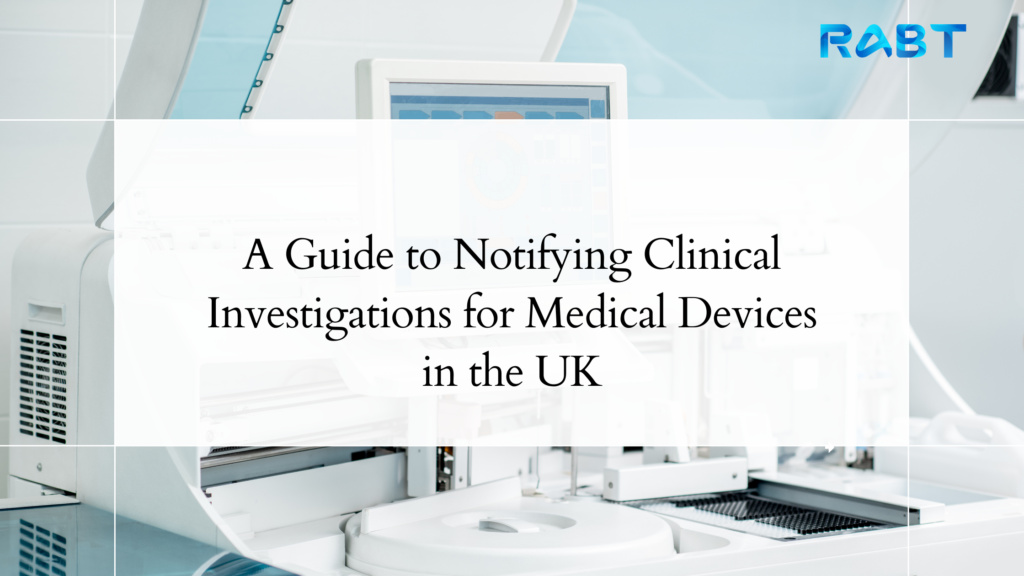Developing innovative medical devices holds immense potential for improving patient care. But before your creation hits the market, it needs to undergo rigorous testing to ensure safety and efficacy. This is where the Medicines and Healthcare products Regulatory Agency (MHRA) comes in.
Why Notify the MHRA? The MHRA plays a crucial role in safeguarding public health by regulating medical devices. Notifying them about your clinical investigation allows them to assess the study’s design and ensure it adheres to ethical and safety regulations. This protects both participants and the integrity of your research.

Who Needs to Notify?
The responsibility to notify the MHRA typically falls on the manufacturer of the medical device. In most cases, the clinical investigator won’t have direct contact with the MHRA.
When to Notify?
Planning a clinical investigation for a medical device in the UK? You must notify the MHRA at least 60 days before you begin the study. This advanced notice allows them to thoroughly review your proposal and raise any potential concerns.
What to Include in the Notification?
The MHRA requires a comprehensive notification package that outlines your clinical investigation plan. This typically includes:
- Details of the device: A thorough description of the medical device under investigation.
- Clinical investigation plan: A detailed outline of the study’s objectives, methodology, participant recruitment, data collection, and risk management strategies.
- Investigator qualifications: Information on the qualifications and experience of the clinical investigator(s) leading the study.
- Ethical approval: Documentation demonstrating ethical approval for the study from a recognized ethics committee.
Additional Consideration
-
- The MHRA website provides a dedicated resource for information on Clinical investigations of medical devices – guidance for investigators.
- Remember, all proposed changes to the clinical investigation, whether related to the device, the plan, investigators, or institutions, require notification to the MHRA.
Staying Compliant, Staying Ahead
By following the MHRA’s guidance and maintaining open communication, you can ensure your clinical investigation for a medical device adheres to the highest ethical and safety standards. This not only protects participants but also paves the way for a successful development process. For expert guidance and support, contact us.

